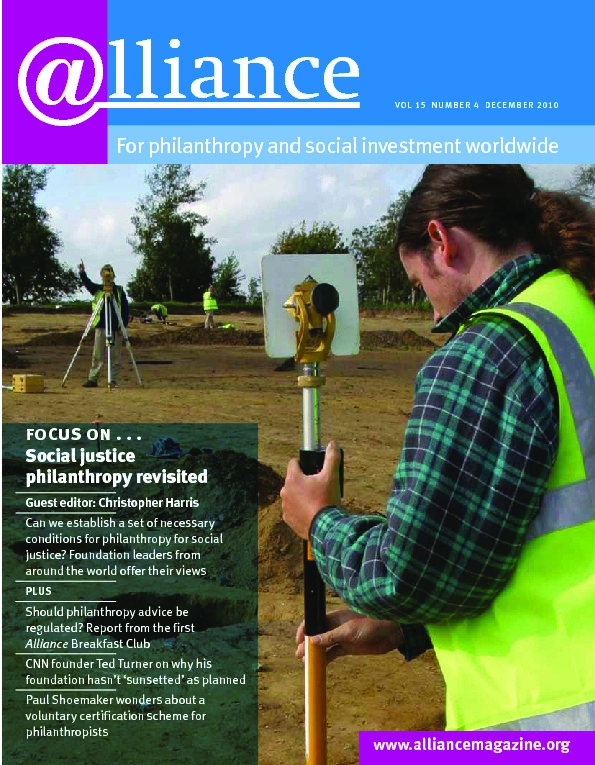As an American working in the field of philanthropy advice and observing its evolution here, as well as in other regions of the world, I read the views of European philanthropic advisers in the latest issue of Alliance with great interest.
It’s amazing to me that we in the advisory field know relatively little about each other. Additionally, as the September issue pointed out, we are a field in search of unified standards for service provision and accountability. Certainly, most of us are members of local, regional and/or national networks that require or suggest adherence to a set of guidelines. But, lacking a larger platform through which we could also share information and engage in professional accountability, we mostly go about our own business, submit ourselves to self-scrutiny and (hopefully) measure our effectiveness through the satisfaction and continued engagement of our clients.
Yet, if I were to read that a grantee organization had this level of professionalization, I’d be very concerned. We are part of a larger effort to increase engagement in philanthropy and its effectiveness. If we are to both contribute to and learn from this effort, should we not be following the very advice we give to our clients and the organizations in which they invest?
I often urge grantees to discuss their challenges and frustrations honestly and fearlessly. While this would be complicated for advisers, given the confidential nature of their work with clients, I would still argue that we need to find a way to share some of our thornier situations and learn from one another.
Take collaboration, too. I cannot imagine recommending a client to invest in an organization that does not work with others in their field. Understandably, the relative youth and client-driven nature of our work makes it difficult to form deep partnerships with peers, but I think we all recognize the potential to build trust and goodwill with clients and prospective clients when we can collaborate on projects or refer work to peers who have a deeper expertise in specific areas of work.
Finally, we must heed our industry’s call for stronger evaluation. This is crucial not only for analysing the work of grantees but also for judging the effectiveness and transparency of foundations and other organizations involved in promoting social change. As a profession that seeks to make giving more successful, we must also strive to hold ourselves accountable to our clients, the NGOs they support and the various sectors within which we interact. This means not only working to clients’ satisfaction and our own standards of best practice, but also asking clients honestly to assess our work and what we contributed to their giving. We must also begin to develop a language to convey to donors what we do and how they can make the best use of our services.
I hope the September issue of Alliance will inspire conversations about how we can all work to create a strong framework for our field.
Hilda Vega
Senior Advisor, Strategic Philanthropy, Ltd





Comments (0)